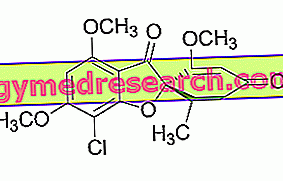Functions in the body
ORGANIC sulfur (and NOT sulphates or sulphites) is an essential component of the human organism;

Overall, around 140g of sulfur is contained in the body of an adult, distributed between:
| Methionine | - Sulfur amino acids | Glutathione | - Vitamins, enzymes, hormones etc. |
| Cysteine | Coenzyme A | ||
| cystine | Thiamine (vit B1) | ||
| Biotin (vit H) | |||
| Insulin |
From the STRUCTURAL point of view, sulfur is an essential micro-element to the construction of connective tissue and mucopolysaccharides, but a small part is also contained in bile acids.
Sulfur in food and requirements
The foods that provide organic sulfur are above all those of animal origin, which provide a good amount of proteins containing sulfur amino acids, and methylsulfonylmethane. The reference foods are above all eggs, meat, fish and cheeses. In the plant world, the most generous sources of sulfur are represented by garlic, onion and cabbage.
In digestion, food proteins containing sulfur are then denatured and hydrolyzed to amino acids (digestion of proteins) subsequently absorbed in the small intestine; the main routes of excretion of the circulating organic sulfur are urinary and fecal.
The recommended sulfur requirement is never treated individually; it, representing an essential constituent of some amino acids or correlating to the foods that contain them, is often evaluated on the basis of the total protein and amino acid contribution. It follows that:
in a diet characterized by a minimum and indispensable proportion of sulfur amino acids, the supply of sulfur will be sufficiently guaranteed, reducing the risk of food shortages.
Deficiencies and excesses of food sulfur are more unique than rare cases, however, in the literature it is possible to identify clinical pictures characterized by growth disorders and physical development.
Sulfur supplements
As already specified, sulfur is a micro-element naturally present in dietary proteins and above all in animal ones. There are several food supplements based on sulfur and a range of very popular products is that based on glutathione and methylsulfonylmethane (MSM), molecules used for:
- Support of liver sulphation processes
- The increase in cell permeability
- The acceleration of natural hair growth
- Improving the synthesis of connective tissue
- The antioxidant action
In the first case, the sulfur-based food supplement acts by facilitating liver detoxification; a striking example is that of the mechanisms associated with the disposal of alcohol or drugs.
In the second case it would be more correct to talk about drugs; in this context, methylsulfonylmethane has proved to be a useful molecule to accelerate the cellular elimination of toxic catabolites, especially in the musculoskeletal system. It is a good remedy in the treatment of joint pain (arthritic and back pain) and muscle pain, fibromyalgia, tendinitis and bursitis, carpal tunnel and various inflammations.
The third case is certainly the least reliable; it seems that the regular intake of sulfur-based products allows faster growth of hair, hair and nails, even if it is established that no supplement can cure or reduce baldness, and there are no scientific data to prove its potential ergogenic on growth.
Finally, it seems to be common opinion that the integration of sulfur can improve and optimize collagen synthesis, thus performing a theoretical antiaging function; from my point of view, it is true that sulfur is a plastic constituent of collagen but it is also true that in a balanced diet it never represents a limiting microelement.
Probably the most important function of sulfur-based compounds and supplements is the antioxidant and protective against free radicals.
The intake of sulfur-based supplements is generally carried out with 750-1000 mg MSM capsules (possibly combined with glutathione) or with products containing an antioxidant mix.
Sulfur-based supplements do NOT seem to present particular contraindications.
Bibliography:
- The Natural Solution for Pain - Stanley W. Jacob



